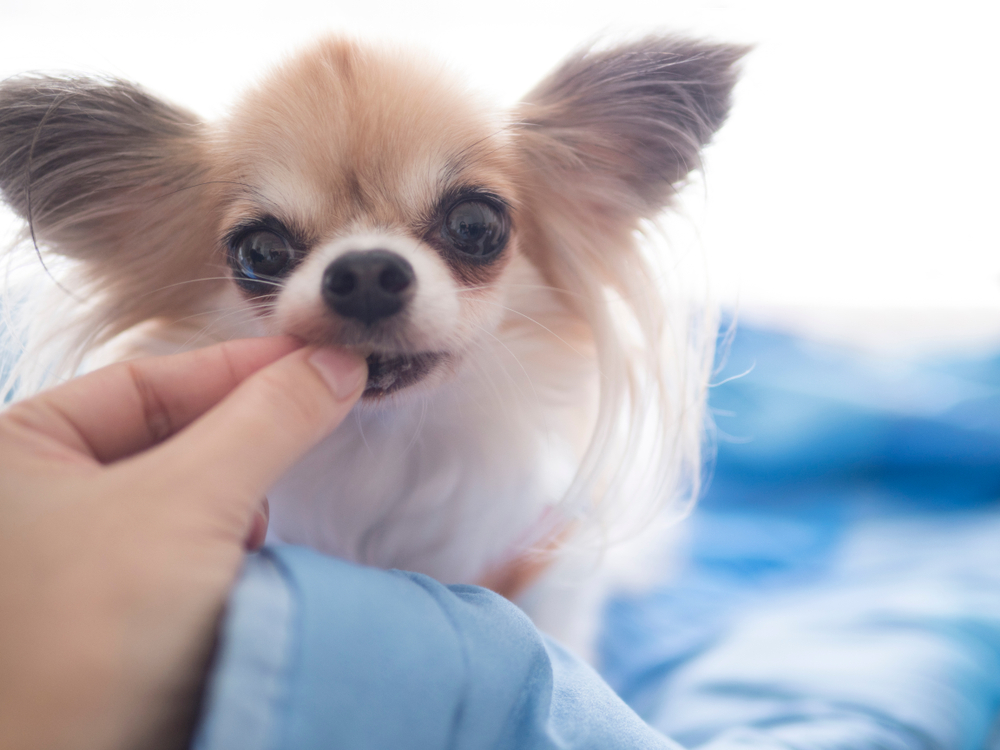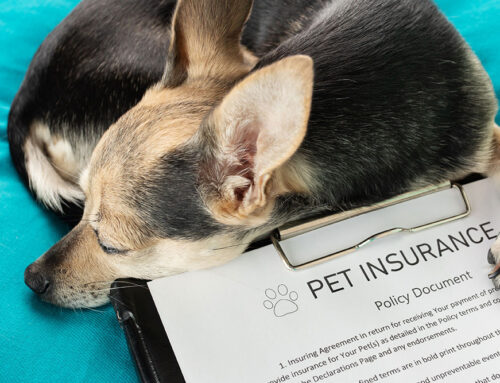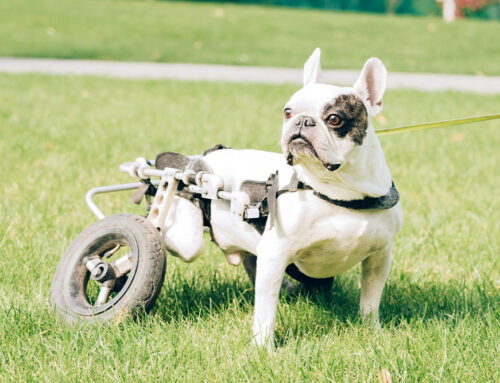Blooming flowers, warm weather, and summer vacations are only a few of the reasons many people look forward to the spring and summer. Many pets also enjoy the additional family time and outdoor activities with their favorite humans. However, these seasons also mean July Fourth fireworks celebrations, which often occur during the weeks leading up to Independence Day. Many pet owners dread the warm weather season because they anticipate their noise-fearing pet’s suffering from the continuous loud noises.
Noise aversion is a common problem for pets, with more than one third of dogs affected, and many more who go undiagnosed. However, the reason why your pet experiences a sound-related anxiety may not be immediately obvious, because dogs can hear more than twice as many frequencies as humans, and can hear sounds four times further away. Cats also can detect much higher frequencies than humans. Our Star of Texas Veterinary Hospital team wants to ensure that pet owners can recognize noise aversion signs, and learn treatment options to decrease their pet’s anxiety.
What is noise aversion in pets?
Like people, pets who are startled or anxious at a loud sound or unfamiliar noise can be responding in a normal, or adaptive, manner. However, pets who tremble or hide for an extended period of time after a specific sound, such as thunder, are likely suffering from noise aversion. The most common noise aversion triggers include fireworks, thunderstorms, and gunshots. Pets who suffer from noise aversion may react only to specific noises, while others may be fearful of unexpected sounds. Noise-averse pets may have mild or extreme phobic reactions, such as hiding, behaving destructively, or running away. In fact, more pets will go missing on July Fourth than any other day because of fireworks fear.
This fearful behavior often goes undiagnosed, because pet owners think the behavior is normal. However, pets with only mild noise aversion are at risk of more severe behavioral problems, including separation anxiety, which is similar to a human panic attack. Noise aversion can mean many sleepless nights for people and pets, which can severely strain the human-animal bond. Additionally, pets with severe anxieties are at risk of injury, such as being hit by a car, if they attempt to escape the traumatic sounds. In some cases, noise-averse pets have a genetic predilection, and some may develop a noise fear from a traumatic event that occurred during puppyhood. Other causes for noise aversion may include:
- Pain (e.g., ear infection, arthritis)
- Hormonal diseases
- Cognitive dysfunction in senior pets
- Neurological disorders
Noise aversion signs in pets
Recognizing noise aversion signs can be challenging, because they may mimic other medical problems. Bring your pet to our Star of Texas Veterinary Hospital veterinarian if they are showing noise aversion signs, which may include:
- Hiding
- Vocalizing
- Yawning
- Nuzzling or clingy behavior
- Drooling
- Trembling
- Panting
- Pacing
- Inappropriate urination or defecation
- Increased water consumption
- Holding their tail between the legs
- Unpredictable, sudden, or destructive behaviors, such as escaping, or jumping through glass windows or doors
Noise aversion diagnosis in pets
Noise aversion and stress typically become worse, so ensure to bring your pet to our Star of Texas Veterinary Hospital for a thorough physical examination, to reduce the chances of severe progression, and to rule out any underlying medical reasons for your pet’s fear response. Ensure you provide our veterinarian with a thorough history of your pet’s behavior, and potential sound triggers and reactions you have observed. Our Fear Free certified veterinarian will also perform a behavioral evaluation, and may recommend blood tests to check your pet’s organ health, and ensure that prescription noise-aversion medications are safe.
Noise aversion treatment and prevention in pets

Many therapies are available to help alleviate anxiety, and treat noise aversion in pets, but all require time, patience, and regular veterinary visits to monitor their progress. A combination of therapies may ensure the best chances of alleviating your pet’s suffering. Pets with severe signs may be prescribed short-term sedatives, to ensure they are comfortable during thunderstorms or fireworks celebrations. Behavioral modification and training programs that slowly desensitize a noise-averse pet may also be recommended, under veterinary supervision, or in consultation with a veterinary behaviorist. Additionally, counter-conditioning by carefully promoting a positive association with a stressful event, like July Fourth, can help alleviate their anxiety. Ensure you provide your pet with their favorite toy or treat during stressful times, so they will positively associate these items with the offending noise. Other treatment options may include:
- Calming supplements
- Specialized diets
- Pheromone sprays, such as Adaptil, or Feliway, that promote a sense of wellbeing
- Anxiety vest, or ThunderShirt, which provides gentle pressure around your pet’s torso to help decrease stress
Early socialization and creating a positive association with a variety of sounds when your pet is young will help decrease their chances of noise aversion development. Ensure you provide your pet with a safe retreat, and consider these prevention tips:
- Playing soft, calming music, which can help muffle fireworks or thunderstorm noise
- Placing their crate with their favorite blanket in a quiet room, with the windows covered
- Speaking calmingly, and providing verbal reassurance
Call our Star of Texas Veterinary Hospital office if you have questions about your pet’s noise aversion, or to schedule an appointment for an examination and behavioral evaluation. We are here to help alleviate your pet’s noise anxiety.






